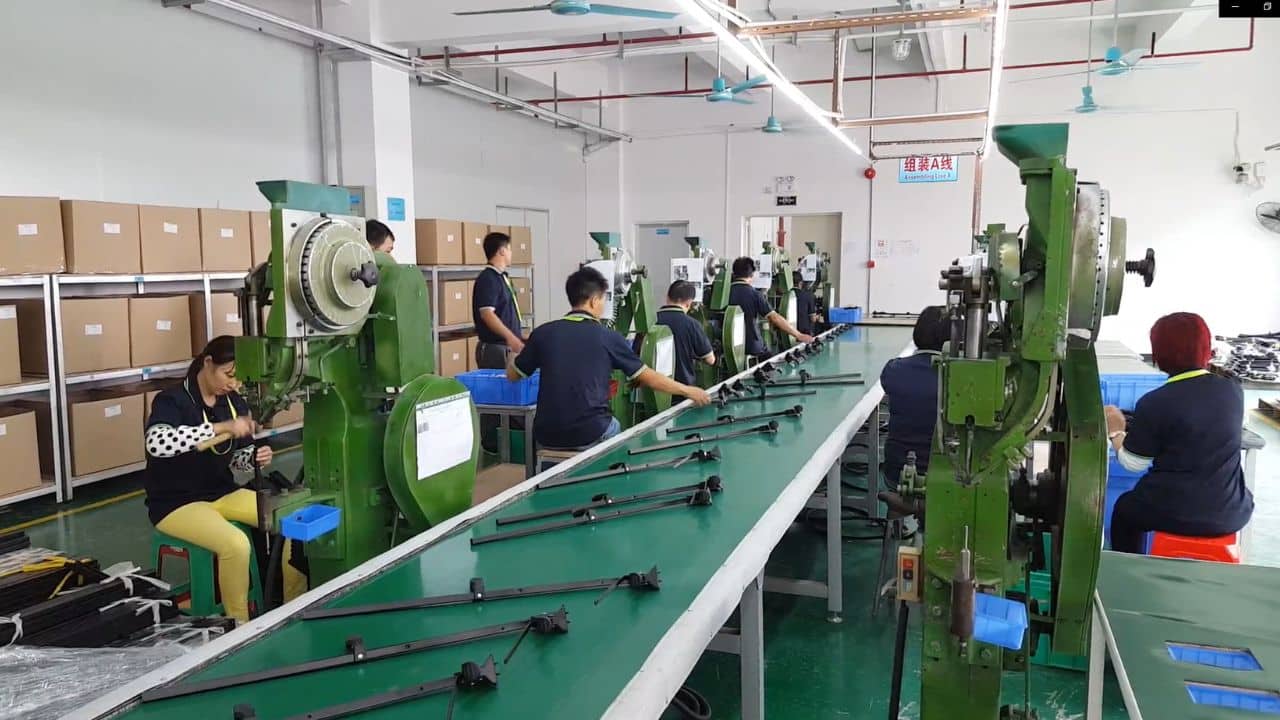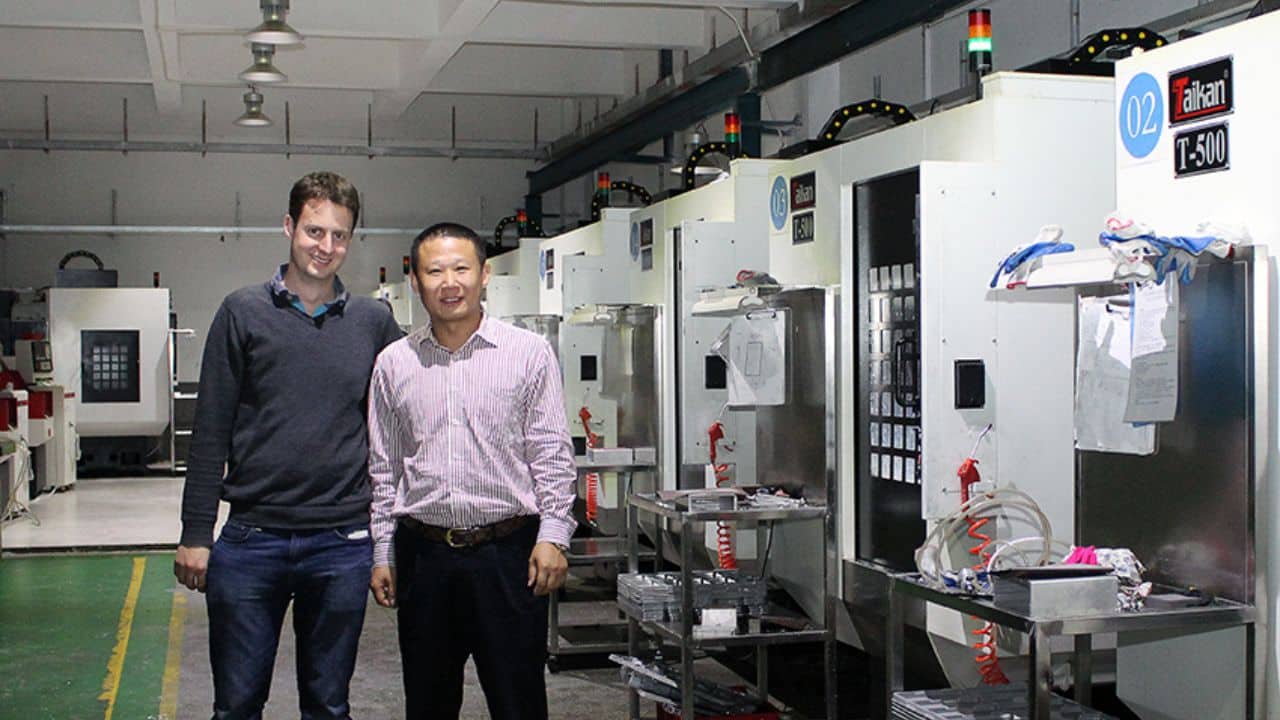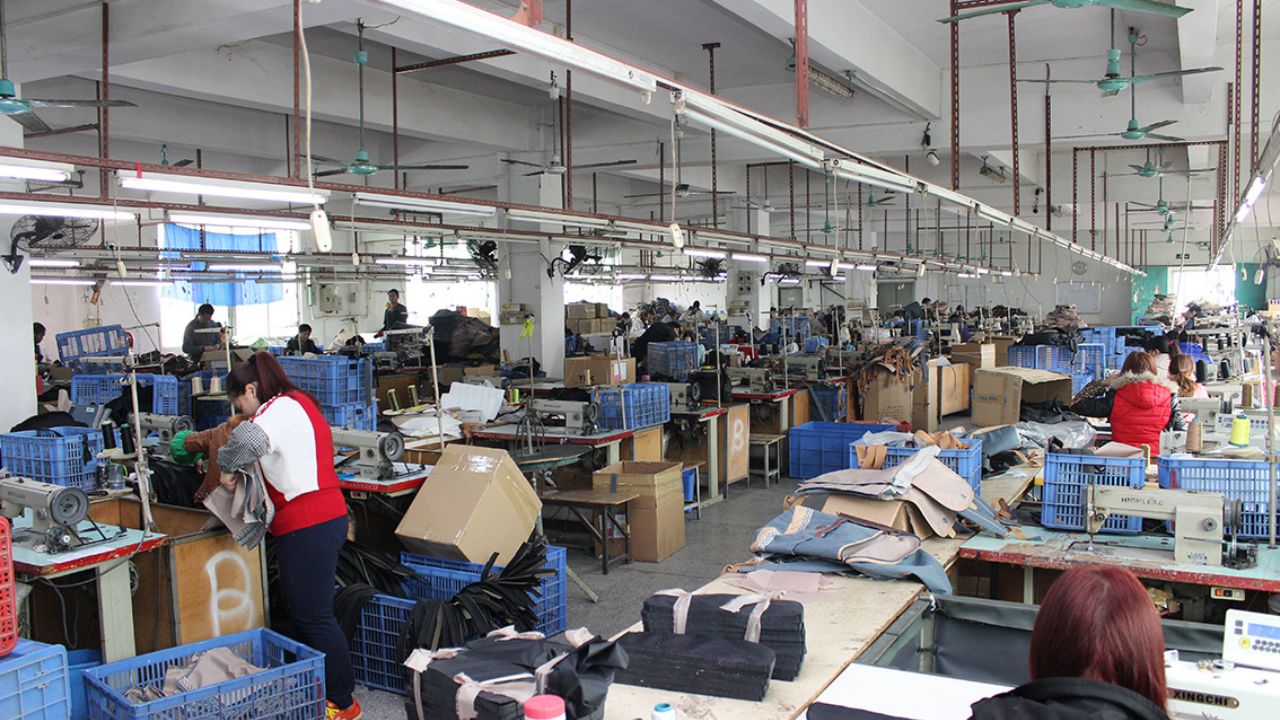Overview
In this important article we discuss the importance of forging solid partnerships with manufacturers, fostering collaboration through face-to-face interactions and a shared understanding of challenges. Discover why highlighting the value proposition of your product and supporting this with a concrete plan tailored to meet manufacturers’ needs as well as yours, is absolutely critical.
In the manufacturing realm, effective communication is king, refining product specifications and driving cost efficiencies. Look beyond immediate gains, prioritising long-term relationships and scalability for sustained success.
Amidst the hustle and bustle of production, safeguard your intellectual property and navigate the manufacturing landscape with strategic precision. By focusing on clear communication and collaborative relationships, you can steer your product towards long term success
What do you mean by ‘approaching’ a manufacturer?
Approaching a manufacturer is a crucial step in starting a new product line. It means initiating contact to discuss the possibility of manufacturing your product. Selecting the right approach when contacting manufacturers is critical to the success of your product as it sets the tone for your relationship with the manufacturer and determines how smoothly the production process will go. To increase your chances of success, it is essential to prepare for the approach, emphasising professionalism, and strategic planning. Now you know what we’re talking about!, read on to discover our tops tips and tricks for how to approach a manufacturer to get a successful outcome.
Why do I need to consider my approach to manufacturers?
Your approach to manufacturers can have a significant impact on the success of your business. Manufacturers are often swamped with requests and have a lot on their plate, so it’s crucial to approach them in a professional and respectful manner. An approach that is well thought out can help you build a positive relationship with the manufacturer and improve your chances of securing a favourable deal. Conversely, a poorly executed approach can result in missed opportunities and cause harm to your reputation in the industry. We’ve seen plenty of clients approach manufacturers unprofessionally and as a result the most experienced factories have backed away and refusing to be involved in the project.
It’s a common misconception among our clients that manufacturers are eagerly waiting for them to approach them with their revolutionary new product. In reality, the most dependable and skilled manufacturers are already busy with their existing clients, and it may take some convincing to get them to take on a new client who is unfamiliar and might cause more trouble than they are worth. Therefore, taking the time to carefully plan and consider your approach can be highly beneficial in the long run.

How to approach manufacturers Process
Importance of Protecting Your Idea before approaching a manufacturer
Considering Intellectual Property (IP) Protection
It is crucial to consider IP (Intellectual Property) protection before approaching a manufacturer because your product idea may be vulnerable to theft or infringement. If you don’t have proper IP protection in place, there is a risk that the manufacturer might steal your idea or use it without your permission. Having a solid IP protection strategy in place before approaching a manufacturer can help protect your product idea and prevent any legal issues down the line.
Utilising Non-Disclosure Agreements (NDAs) when manufacturing a product
When discussing your product idea with a manufacturer, it’s important to have them sign the NDA before you disclose any confidential information. This will ensure that they are legally bound to keep the information confidential and prevent them from sharing it with anyone else. You may also want to consider having the NDA reviewed by a lawyer to ensure that it adequately protects your interests. It’s important to note that NDAs are not foolproof and there is always a risk that confidential information could be leaked. However, having an NDA in place can deter manufacturers from sharing your confidential information and provide you with legal recourse if the information is leaked.
Preparing Your Approach to manufacturers

Developing a Comprehensive Technical Pack is crucial in ensuring that all aspects of your product are clearly communicated to the manufacturer. By having a detailed manufacturing specification (another name for the same document!), you can avoid misunderstandings and achieve your desired outcome. This document will also form the basis of your QA and QC requirements during production.
Professionalism and politeness are essential in building meaningful relationships. By being respectful and courteous in all communications, you demonstrate your commitment to creating a positive and productive working environment. This, in turn, fosters trust and strengthens relationships. When I first starting manufacturing products in the Far East, there were some clients who felt that you had to be overly firm with manufacturers to the point of rudeness. We don’t suggest operating this way as the best manufacturers do not require this type of high-handed approach.
Building a Strong Relationship with Manufacturers
Establishing a strong relationship with manufacturers is vital for any business that depends on their products. One effective way to achieve this is by making personal visits to the manufacturers. This approach helps to establish a stronger connection and provides a better understanding of their capabilities, which can lead to better collaboration and communication.
When working with manufacturers, it’s important to acknowledge the challenges they may face with unique new products. By doing so, we can foster a more collaborative relationship and find solutions together. Effective communication and a willingness to work together can help us overcome any challenges that arise during the production process.
Do bear in mind that when working in China particularly, that saving “face” is a key cultural requirement. This has many ramifications but particularly flies in the face of collaboration. Make it clear that you want to help and that they shouldn’t just go silent if something isn’t working out as expected first time.
Persuading Manufacturers to Take on Your Project
When it comes to persuading manufacturers to take on your project, it’s essential to make a compelling case. This involves showcasing the market potential of your product, a detailed marketing and growth plan, showcasing your team and skillset and demonstrating your readiness to undertake the project (including cashflow potentially).
It’s also important to understand manufacturers’ perspectives and align your proposal with their interests where possible. By doing so, you can increase your chances of securing a partnership with larger or more reputable manufacturers. Remember to approach the process with an open mind and willingness to collaborate to foster a successful relationship.
I remember a particular client who ran a successful electric wheelchair business. They spent thousands developing an innovative concept, gaining patent protection and developing a professional company presentation just to win over one particular Thai manufacturer. It certainly worked but they put in the hard graft to acheive it. The reason why? They were reliable, cost effective and highly experienced. My client knew that, in the medium to long term, it was well worth securing them in terms of what they would save in hassle, potential product returns and lose of brand reputation if the products didn’t last.
Manufacturing a product – The Significance of Clear Communication

When it comes to manufacturing a product, clear communication is of utmost importance. It ensures that everyone involved in the process is on the same page and working towards a common goal. To start with, it is crucial to articulate your product vision and specific manufacturing requirements effectively. This means clearly outlining your goals, expectations, and any technical specifications or unique features that your product might have.
To do this effectively, it’s essential to communicate a detailed understanding of your product, its target audience, and the market you’re hoping to enter. I am often surprised that clients don’t tell the manufacturer what the product does and what the design intent is of the different parts. This is self-defeating as it ties the hands of the manufacturer. You should also be prepared to answer questions and provide additional context as needed subject to having the right IP protection in place.
Once you’ve communicated your vision and requirements, it’s time to receive feedback from manufacturers. This feedback is critical, as it can help refine your product design and specifications and critically reduce costs. Be open to suggestions and willing to make revisions as needed as long as they don’t affect customer perception of the product.
The manufacturing process is iterative, meaning that there will be multiple rounds of revisions and refinements. The key is to stay organised, communicate clearly, and be willing to work collaboratively with your manufacturing partners to achieve your desired outcome.
It’s important to keep in mind that the manufacturer you’re dealing with may be operating in their 4th or 5th language. When you communicate your requirements to the representative, they have to relay them to multiple people down the chain before the factory worker actually hears what is needed. This process can be likened to the game of “Chinese Whispers” (this bring a whole new meaning to this phrase!) and it’s worth considering how it can impact your project and what you can do to make this error free.
Long-term Considerations when Manufacturing Products
When it comes to manufacturing products, it’s important to think beyond the immediate present and consider the long-term implications of your decisions. One key aspect of this is building long-term partnerships with your manufacturers, rather than treating them as transactional interactions. By cultivating a strong relationship with your manufacturer, you can ensure that they are invested in the success of your product over the long haul.
I always consider what will happen if I contact my manufacturer with an urgent request. Have I built up a good enough relationship that they will deal with my requirement first because of the positive relationship we have built even if a higher value client needs something as well? The cost of this relationship building is low but the benefit can be priceless in a difficult scenario when you need something.
Another important consideration is scalability and flexibility. As your product evolves and grows, you’ll want to ensure that your manufacturing agreements are able to keep pace. This means thinking carefully about the terms of your agreement and ensuring that they allow for changes and adaptations as needed, without disrupting the flow of production. By keeping these long-term considerations in mind, you can help ensure the ongoing success and growth of your product over time.






How to approach manufacturers FAQs
How do you reach out to a manufacturer?
Using a Direct-to-Manufacturer (D2M) approach can help establish a direct relationship with the manufacturer, giving you greater control over the production process. To reach out to a manufacturer, research and identify ones that produce products similar to yours, and provide them with clear and concise information about your product and needs. This approach can lead to better communication, faster response times, and a greater understanding of the manufacturer’s capabilities. Alternatively, if you don’t have time for the above, then consider using an agent.
What do you say to a manufacturer?
When reaching out to a manufacturer, it’s important to introduce yourself and your company, explain what type of product you are looking to manufacture, and provide any necessary details or specifications. It’s also a good idea to ask about their manufacturing process, lead times, and pricing. Finally, you should express your interest in working with them and ask about the next steps in the process.
How do you ask a factory to make your product?
To ask a factory to make your product, you should first identify potential factories that have the capability to produce your product. Then, you can reach out to them and provide details about your product, such as design specifications, materials, and quantities. It’s also important to discuss pricing, lead times, and any other relevant details before moving forward with production. You can initiate contact through email, phone, or in-person meetings depending on what works best for you and the factory.
How do I start manufacturing a new product?
Starting to manufacture a new product can be a complex process, but it can also be very rewarding.
Here are some basic steps to get you started:
- Valid your new concept: This should include checking that it can eb manufactured, that it is commercially viable and that there is a market for it.
- Create a prototype: Develop a prototype of your product to test it and make improvements.
- Find manufacturers: You will need to find a trust-worthy, reliable and experienced manufacturing partner.
- Secure funding: You can finance your business through loans, grants, or investors.
- Obtain necessary licenses and certification: Check to make sure what is required to legally sell your product.
- Commission production: Choose a manufacturer that is suitable for your manufacturing needs with the necessary machinery and equipment.
- Launch your product: Once you have completed the above steps, you are ready to launch your product and start manufacturing.
How do you approach a supplier?
When approaching a supplier, it’s important to do your research beforehand. Look for suppliers who specialise in the type of product or materials you need, and make sure they have a good reputation in the industry. Once you’ve identified potential suppliers, you can reach out to them via email or phone to introduce yourself and your business, explain what you’re looking for, and ask about their pricing and availability. Be clear about your expectations and requirements, and don’t hesitate to ask for references or samples if necessary. Remember to be polite, professional, and respectful in all your interactions with suppliers, as building strong relationships is key to successful manufacturing partnerships.

Conclusion
In conclusion, approaching manufacturers and suppliers can be a daunting task, but with the right approach and preparation, it can lead to successful partnerships and ultimately, the production of high-quality products. Remember to do your research, be clear about your needs and expectations, and establish open and effective communication channels. By following these steps, you can increase your chances of finding a reliable and trustworthy manufacturing partner and successfully launching your product into the market.

